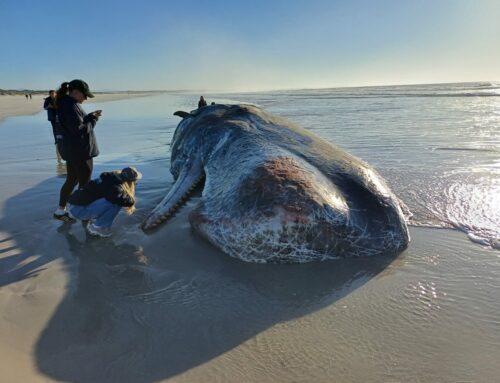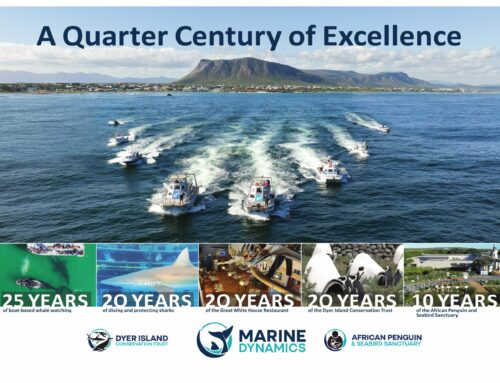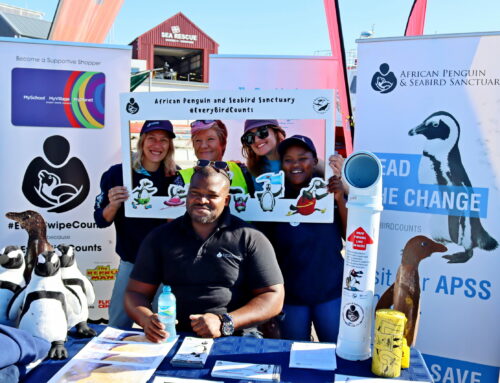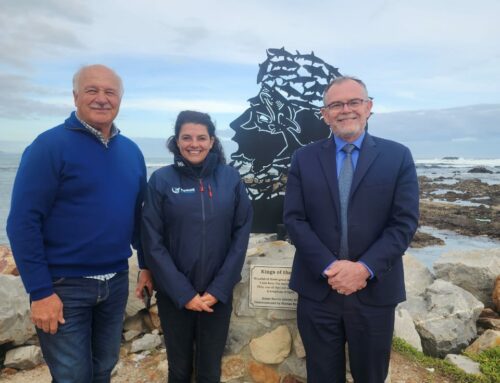South Africa is known for its amazing shark biodiversity and is one of the few areas around the world known to be a hotspot for this kind of diversity. The country’s waters are home to a wide array of shark species, making it a prime location for scientific research and conservation efforts.
In the world of the Dyer Island Conservation Trust and Marine Dynamics, every single day holds the significance of Shark Awareness Day!
It is through the support of the Tourism Industry that our teams are presented with the opportunity to venture out to sea on a daily basis, embracing the whims of weather and tides. Over the course of two decades, we have meticulously gathered a vast database of observational data, unveiling the secrets of the sharks in our region. Our teams, with their wealth of knowledge, educate and enlighten thousands of guests each year about these majestic creatures and their indispensable role within the Dyer Island ecosystem. Witnessing the departure of our guests, not only with lifelong memories but as true advocates for sharks, fills us with immense joy.
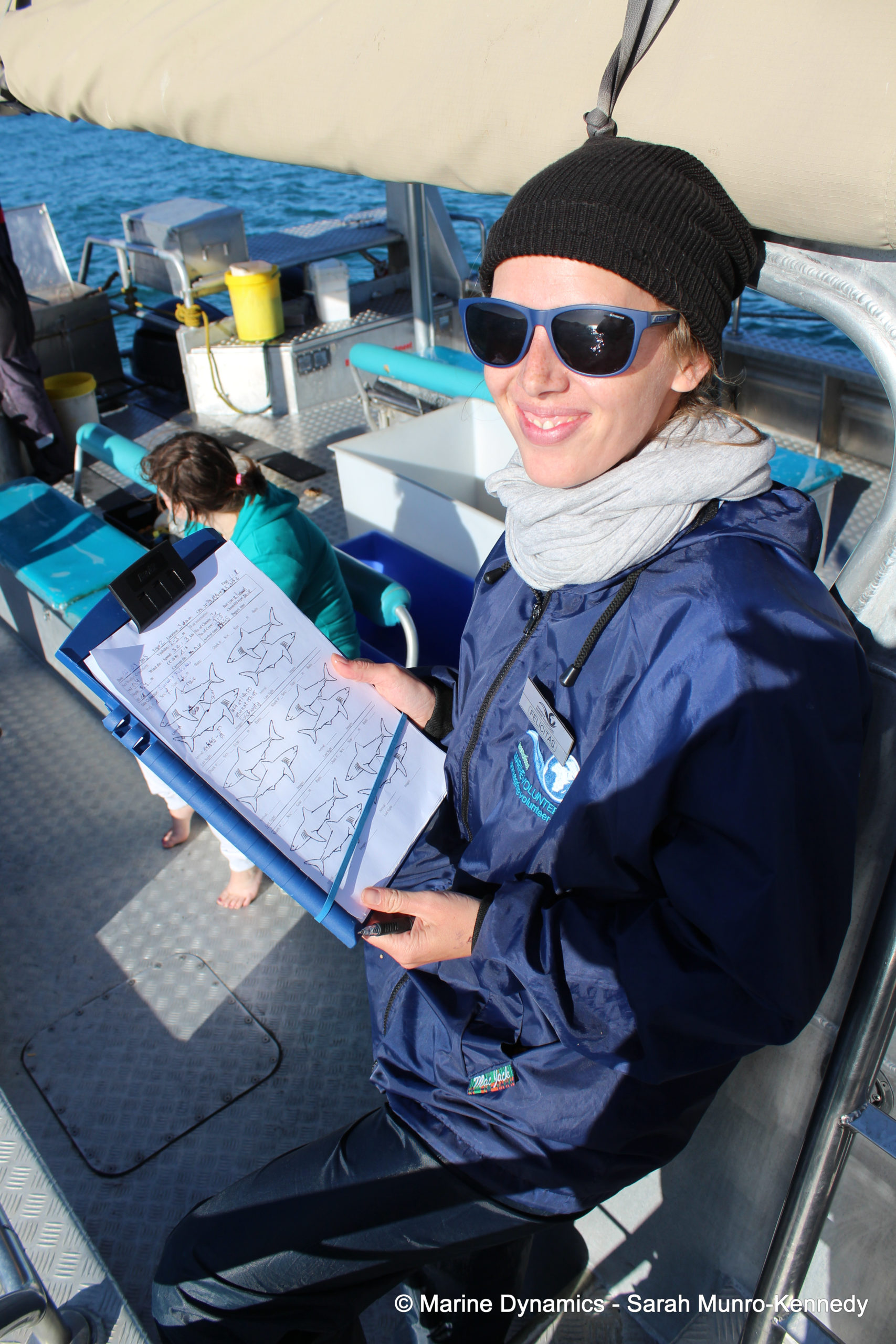
For years, we have worked persistently to establish the area where Marine Dynamics conducts its shark cage diving tours as a sanctuary, devoid of shark fishing. We have tirelessly communicated the true value of a Bronze Whaler shark, illustrating that it is more economically viable to keep these creatures alive rather than to sacrifice their lives. Vessels are not permitted to target sharks. Targeting is defined as purposefully setting gear aimed at catching sharks, including wire traces, hooks above 12/0 and live bait. This monumental achievement extends far beyond the realm of the shark cage diving industry or the bigger species of sharks; it is a triumph for all sharks inhabiting this ecosystem.
Without a doubt, we firmly believe that if our boats were not diligently patrolling the waters, and monitoring the sharks, these awe-inspiring creatures would fall victim to relentless poaching and excessive fishing. Research serves as the cornerstone of shark conservation. By understanding the various pressures exerted on shark species, we empower ourselves to advocate for conservation decisions on a governmental level. The research facilitated through the shark cage diving industry has garnered international and national recognition, validating its pivotal role in preserving these magnificent creatures.
Another effective method used to examine shark populations, and one used frequently by the Dyer Island Conservation Trust, is the Baited Remote Underwater Video (BRUV). This innovative technique has provided valuable insights into the biodiversity of South Africa’s shark species.
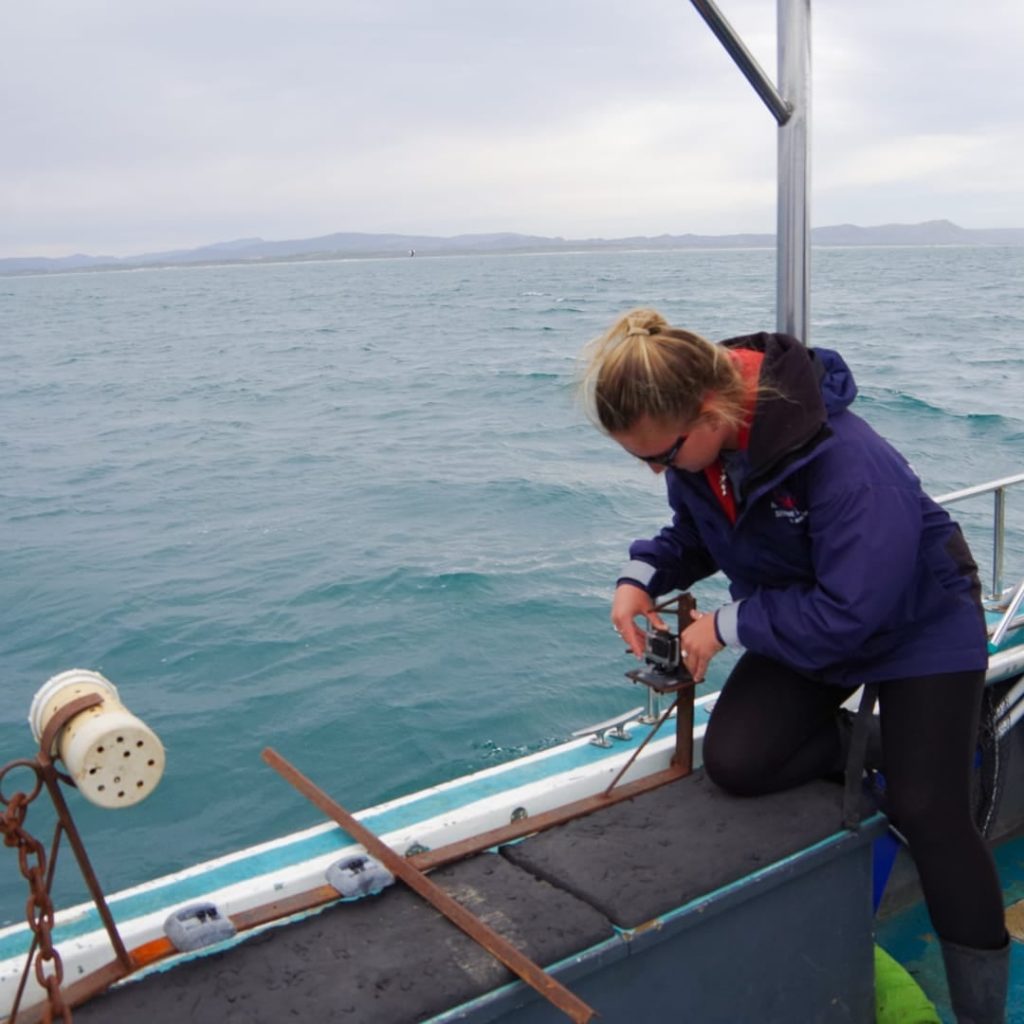
BRUVs are a non-invasive and non-lethal approach to studying shark populations. They involve deploying a baited camera system onto the seabed, which attracts sharks and other marine organisms. These cameras capture high-resolution footage, allowing scientists to identify different species and assess their behaviour and abundance. By employing BRUVs along the South African coastline, researchers have gained significant knowledge about the distribution and ecological roles of various shark species.
One of the beautiful species we see on our BRUV systems, and one regularly sighted around the shark cage diving vessels, is the fascinating broadnose sevengill shark (Notorynchus cepedianus). This large, primitive shark is a resident of the country’s temperate coastal regions and estuaries and is classified as Vulnerable by the IUCN. The sevengill shark is named after its distinctive seven gill slits, which are unusual among modern sharks (the majority of shark species have only five gill slits). It is an apex predator, feeding on a wide variety of prey, including other sharks, bony fish, cetaceans, and seals, thus playing a crucial role in maintaining ecosystem balance.
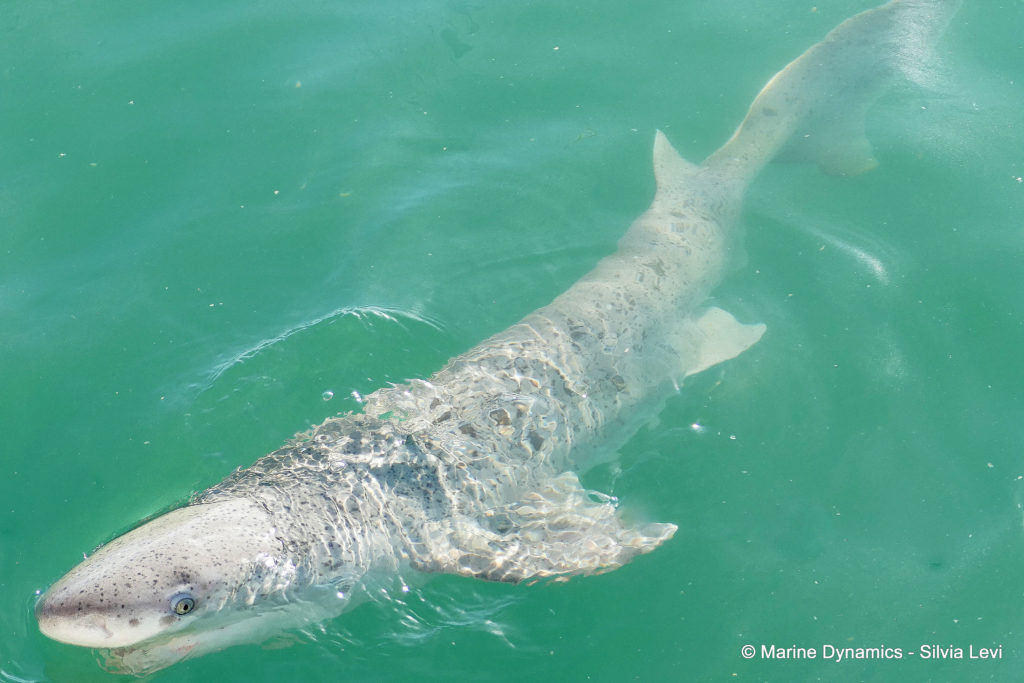
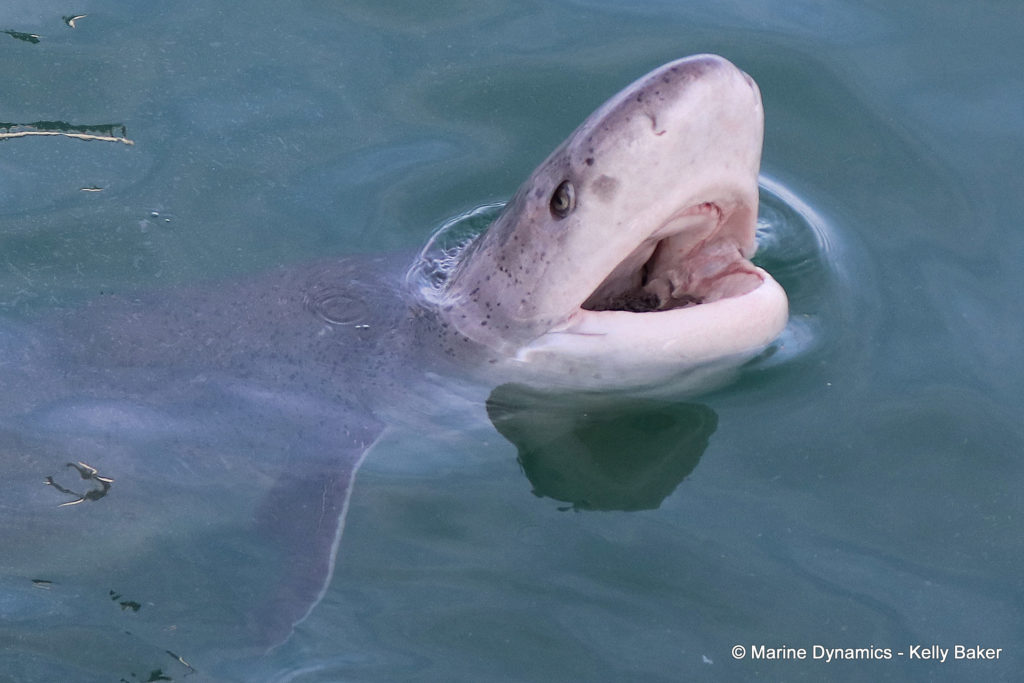
BRUVs have been instrumental in shedding light on the behaviour and abundance of sevengill sharks. These surveys have shown that these sharks are not only coastal residents but also have the ability to venture into offshore habitats. By capturing their movements and interactions on camera, researchers can better understand the factors influencing their population dynamics and migratory patterns.
The information obtained from BRUV surveys is vital for developing effective conservation policies to protect threatened and endemic shark species. The data allows scientists to assess population trends, identify critical habitats, and monitor the impact of human activities on these vulnerable species. With this knowledge, policymakers can make informed decisions about marine protected areas, fishing regulations, and other conservation measures to ensure the long-term survival of these magnificent creatures.
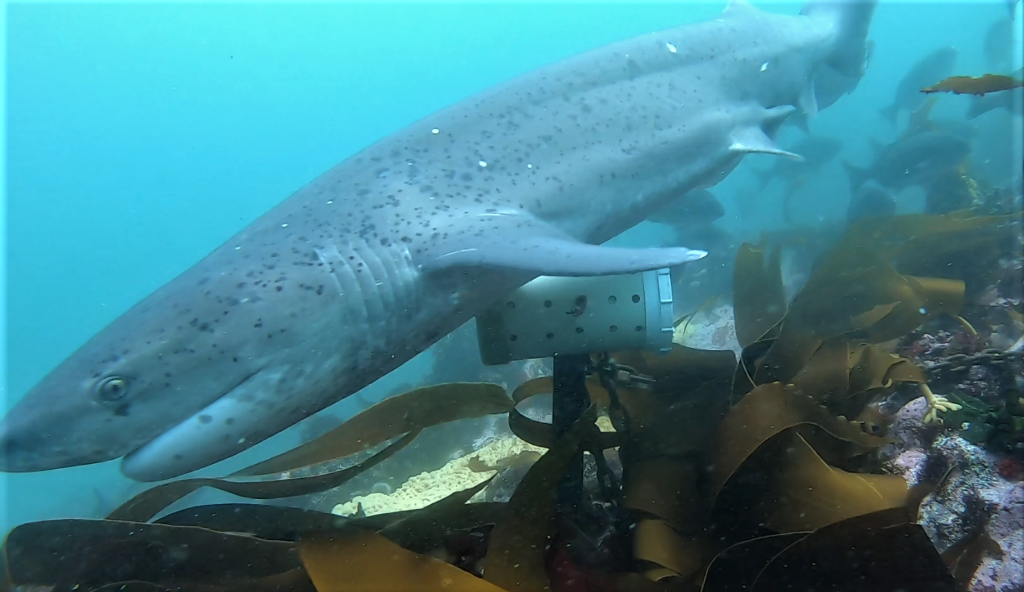
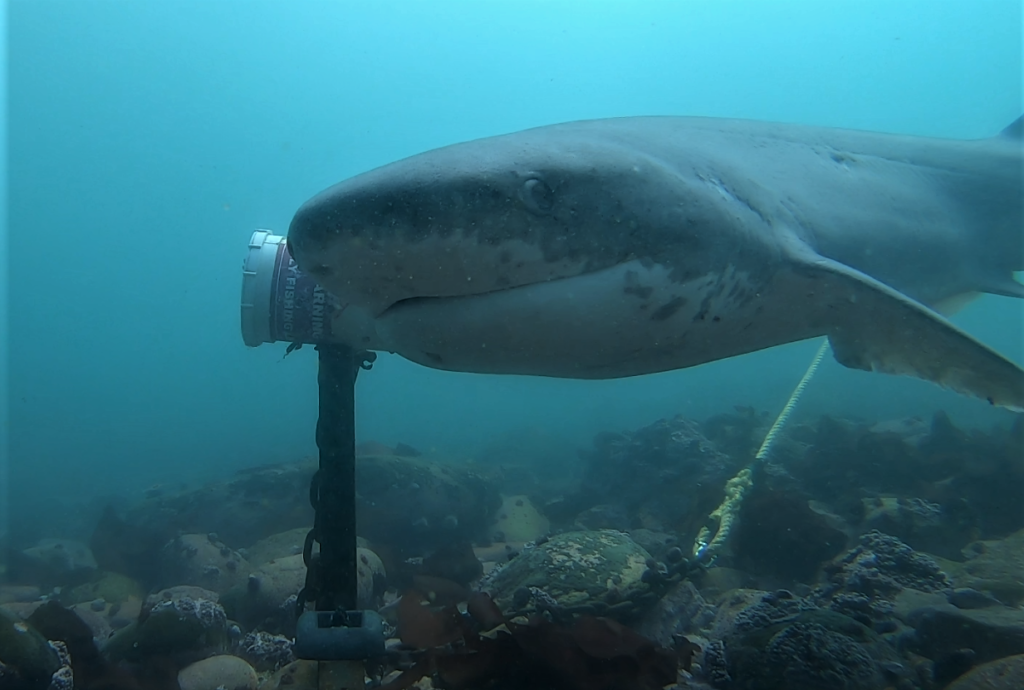
Recently scientists from the Dyer Island Conservation Trust collaborated with various researchers around South Africa, headlined by WildOceans, on a publication showcasing the most effective placements of Marine Protected Areas (MPAs) for the protection of shark species. Updated distributions of various threatened and endemic shark species of South Africa were created based on information from a wide variety of methods. These were then lined up with various fishing pressures, and the areas outlined where MPAs would be the most effective for protecting some of our most vulnerable shark species.
South Africa boasts a rich shark biodiversity, and we have to take good care of them. Offering a fascinating glimpse into the underwater world, Baited Remote Underwater Video Surveys (BRUVs) have revolutionized our understanding of shark populations and behaviour. The broadnose sevengill shark is just one of the captivating species that has been studied using BRUVs, revealing important insights into its distribution and ecological significance.
By leveraging the information obtained from observational data collected through shark cage diving and BRUV surveys, policymakers can make informed decisions to protect and conserve threatened and endemic shark species, securing the future of these magnificent creatures for generations to come. Let’s continue to explore and safeguard the precious shark biodiversity of South Africa’s waters!
We welcome any donations toward our shark research projects: https://dict.org.za/donate/
#sciencesavessharks

